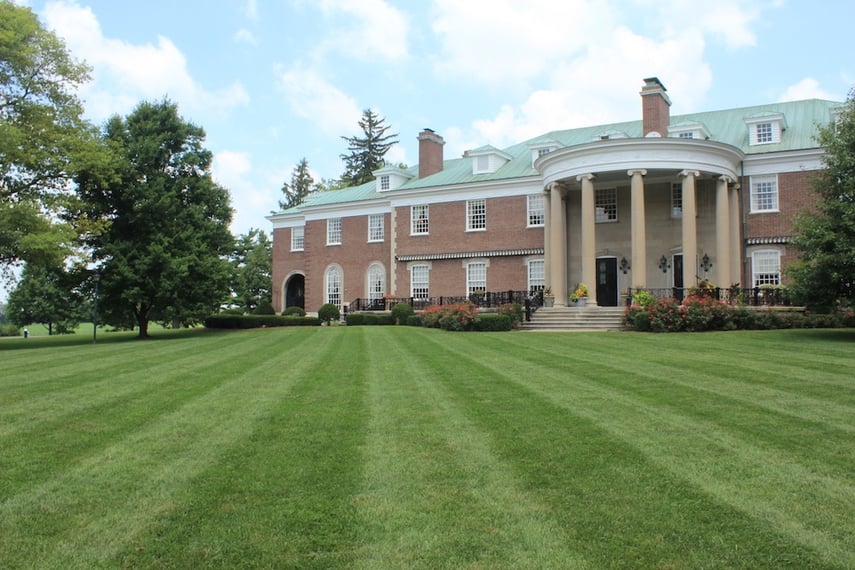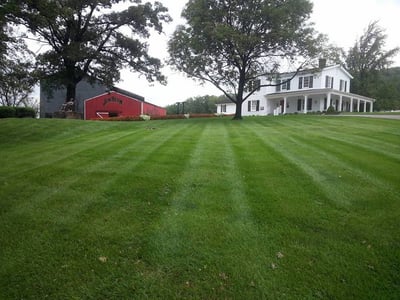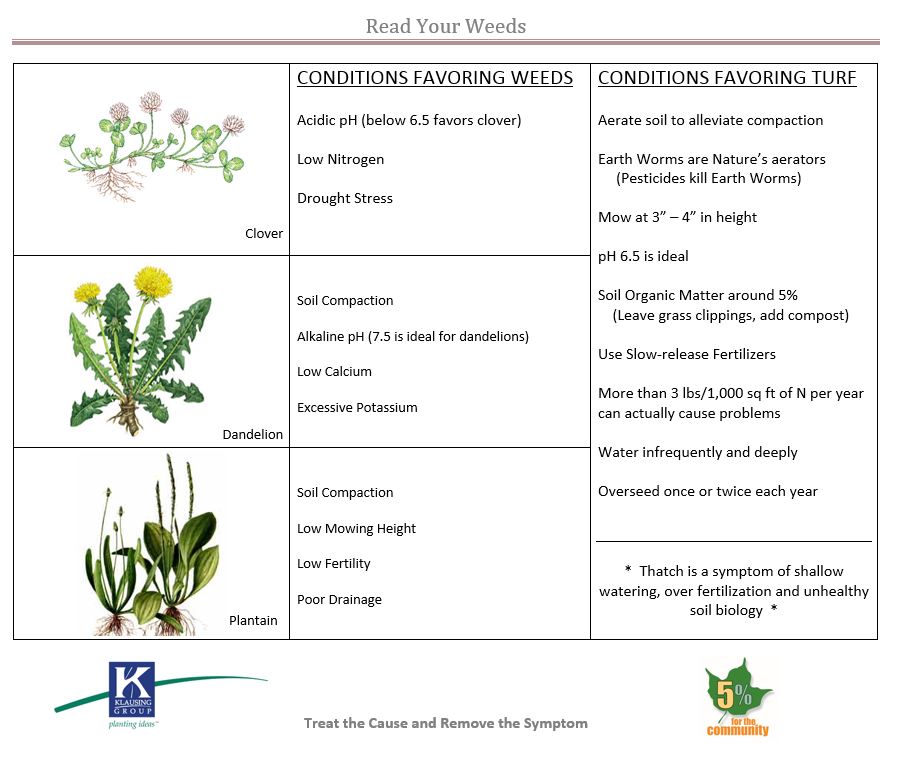Have you ever wondered why weeds are so common in some lawns but not in others? The absence of weeds in turf is not all about fertilizers and herbicides. Rather, weeds are symptoms of unhealthy soil and improper growing conditions for turf. By rethinking how we manage turf, we can reduce weeds and improve turf health all while using less fertilizers and herbicides.
Weeds vs. Turf—It’s All About Competition
Lawns are very much like Goldilocks – conditions need to be just right for the turfgrass to be happy. The soil can’t be too acidic or too basic, there can’t be too much nitrogen or too little nitrogen, the organic matter could be too high or too low, the mower is too high or the mower is too low, and on and on and on. If the conditions favoring turfgrass are out of balance, then the weeds can out-compete and proliferate. Poor quality soil or poor soil health management are often the root causes (pun intended) of strong weeds and weak turf.
How do you know if your soil quality is poor? Soil samples that are sent to a lab for analysis will provide detailed information about soil content and composition. Meanwhile, an experienced turfgrass professional can get a quick read on soil problems based on the weeds in your lawn.
For example, a lawn with clover likely contains soil with low nitrogen and drought stress. If we notice lots of dandelions, that indicates soil compaction, alkaline pH, low calcium and excessive potassium. Plantain weeds are also a sign of soil compaction, and can result with low mowing height, low fertility and poor drainage.

Why Does Central Kentucky Have Bad Soil Conditions?
Soil is the real culprit of weeds in turfgrass, but why is soil quality poor in Central Kentucky? The cause stems from modern construction practices that call for stripping away topsoil and running heavy machinery over the ground that compacts soil. Construction debris is left behind, and often covered with a thin layer of topsoil that is graded to cover up what lies beneath. You can imagine what happens when turf is planted. Roots can only dig down so deep before they hit that compacted soil. The ground does not provide a proper growing medium for turfgrass, or any plant for that matter. Why do weeds thrive in this environment? Again, it goes back to competition. Turfgrass is like Goldilocks, and those types of soil conditions are not conducive to growing lawns.
What Conditions Favor Turf?
Turf needs air, water, and organic matter to thrive.
- Aerated soil alleviates compaction provides more air circulation and allows for water and nutrients to penetrate soil and reach turfgrass roots. Lawns should be aerated and overseeded once or twice each year.
- Active soil biology, like beneficial microbes, beneficial fungi, and earthworms. Thatch is an indicator of poor soil biology. Earthworms are nature’s aerators (careful if you use pesticides as some are known to kill earthworms).
- Proper mowing practices call for cutting turfgrass at a 3- to 4-inch height or longer. The taller your grass is, the deeper the roots will grow. When turf is cut too short, it is more susceptible to weeds and disease.
- The ideal soil pH is 6.5, and soil should include about 5% of organic matter. (This can be accomplished by leaving grass clippings and adding compost.)
- Less fertilizer is often times better than more fertilizer. Too much nitrogen causes weak root growth and strong top growth; it can also lead to disease problems. Always run a soil test and apply only what’s needed.
- Watering should be done infrequently and deeply to promote deep root growth.
Weeds will always be part of our lawns, but we can choose how to address the problem in one of two ways. Either through treating the symptom only or by treating the cause. Let’s talk more about how our Naturally Better Turf Program will help your lawn look its best. Contact us anytime in Lexington at 859-254-0762 or in Louisville at 502-264-0127. Or fill out this form to request a proposal and we’ll get in touch with you.



